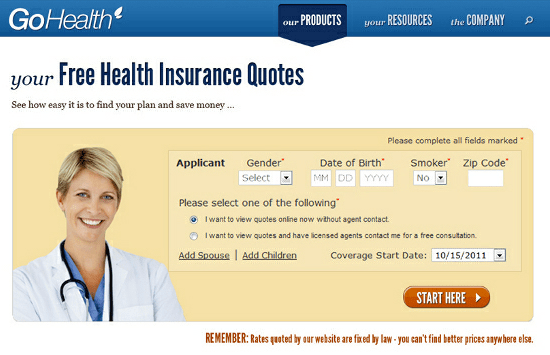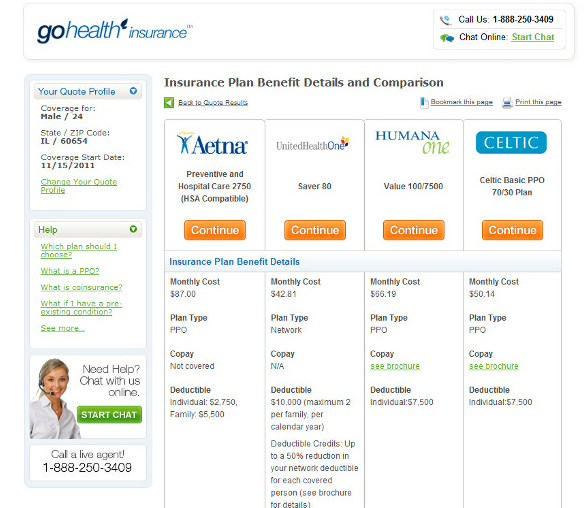This month, the Supreme Court is expected to rule on the constitutionality of the Affordable Care Act (also known as Obamacare), deciding whether or not adults in the U.S. will be required to purchase healthcare. If the Court rules in favor, millions of Americans will soon be in the market for health insurance. This would be a boon for companies like GoHealth, the Chicago-based tech company behind GoHealthInsurance.com, an online portal that allows consumers to comparison shop for health coverage.
That’s part of the reason that GoHealth is taking on a $50 million equity investment from middle market investment firm, Norwest Equity Partners. In the event the individual mandate does pass, GoHealth wants to be ready for a potentially huge flock of irritated healthcare shoppers. Even if it doesn’t, the company believes it’s ready to take the next step and will use the funding to accelerate its growth.
So far, it’s been a slow burn. GoHealth, once known as Norvax, has been around since 2001, when co-founders Clint Jones and Brandon Cruz launched what they believed to be the first multi-carrier quote engine. First mover ribbon or not, GoHealth has become one of the larger players in the field, capitalizing on the fact that an increasing number of consumers (if they choose to go through the mind-numbing process of shopping for health insurance at all) prefer to do so online.
Today, the company works with more than 100 insurance carriers, 10K licensed agents, and has seen over 30 million Americans shop for and purchase health coverage on its platform. That’s no small feat, and that brand recognition is part of the reason it’s seeing an average of about one million customers per month, according to Cruz.
Also, as previously noted, shopping for health insurance is a pain in the ass. Any kind of transparency or price comparison system is better than nothing — our traditional alternative. So, GoHealth made a smart play over the last decade (during which most decided that they wouldn’t touch health care problems or solutions with a 10-ft pole), building an end-to-end platform for the whole shopping process.
Consumers can not only shop, but also compare and actually purchase their coverage on GoHealthInsurance.com or through a licensed agent. Again, the key: GoHealth’s process is, for the most part, simple. Users enter their date of birth, gender and zip code on the homepage to get personalized options based on how many cigs you cough down every day, your age, and what’s available in your area.
Next, users can sort through health insurance options based on their preferences for deductibles, premiums, or carriers. They can then choose up to four plans to compare side-by-side based on benefits, options, cost, etc. Finding the lesser of four evils, users can apply for the coverage of their choice online.
The kicker is that, beyond offering a comparison engine (which, although cool, haven’t car sites been doing this since the 1800s?) when you get to the point where you feel you’re going to pull your hair out or choose a plan that only covers inpatient substance abuse rehab, you can easily contact one of their agents for advice or get help from a customer service rep.
With its new funding, GoHealth will look to add to its current 125 employees and continue to expand its bullpen of agents, and ramp up marketing. The round follows an equally impressive raise by Castlight last month ($100M), which is essentially tackling the B2B or employer side of the market. The company, which enables self-insured businesses to give their employees the ability to compare the cost and quality of tests and procedures, told us at the time that it’s staying employer-focused for the foreseeable future.
The two aren’t in any way competitors, but they could be great complementary tools should Castlight begin offering a consumer-facing solution. With the changing face of healthcare and insurance in the U.S., Supreme Court-approved Obamacare or not, this country is sorely in need of more tools like these. There’s no such thing as too much transparency when it comes to healthcare.

